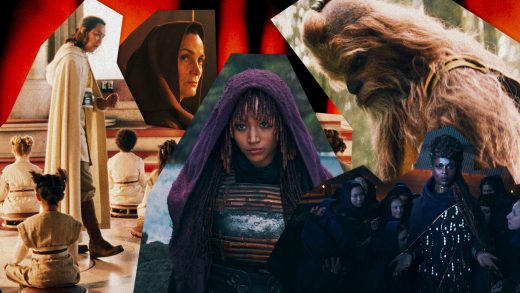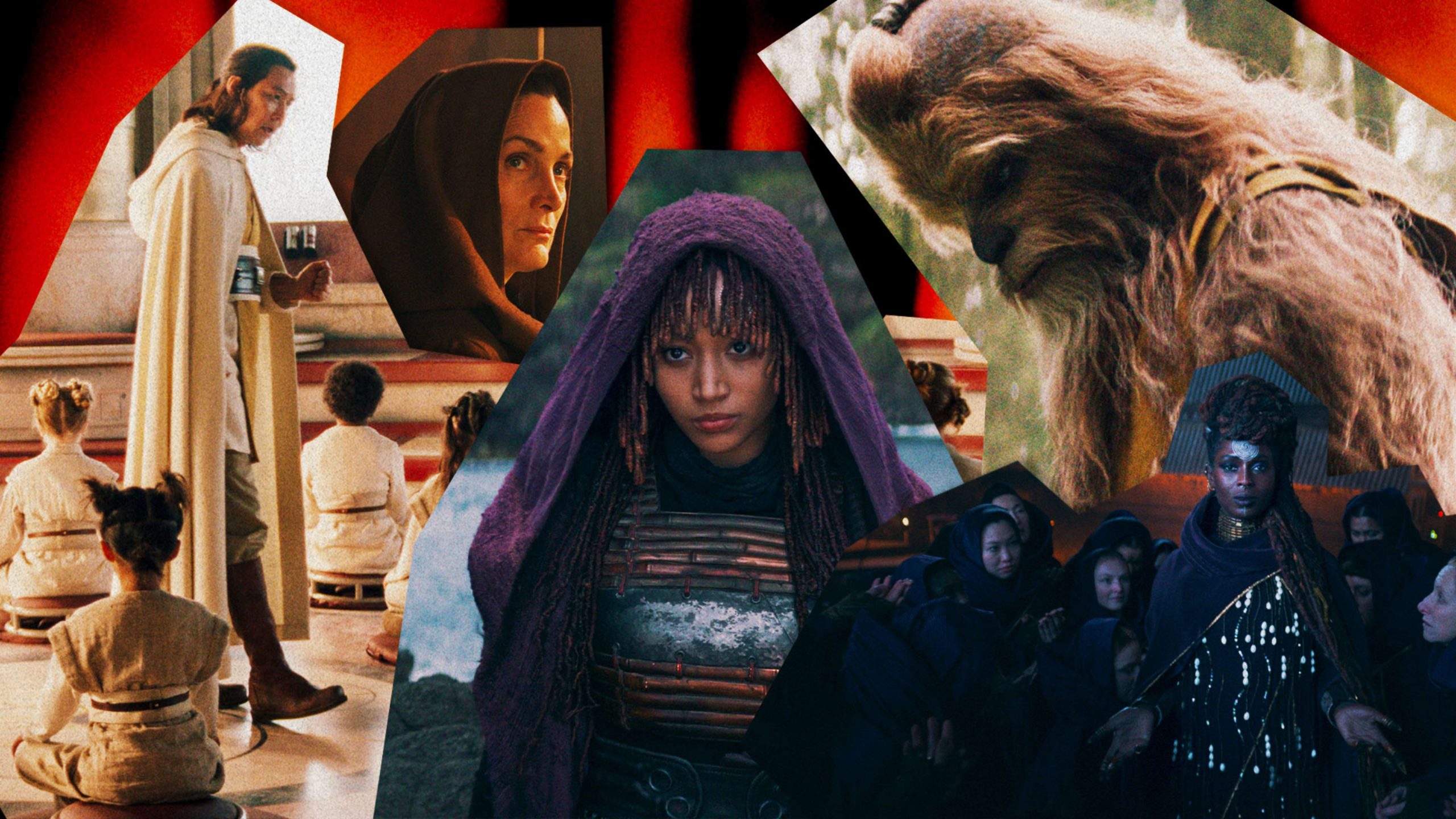DEI is not why ‘Star Wars’ is getting worse
DEI is not why ‘Star Wars’ is getting worse
‘Star Wars’ fans complaining about Leslye Headland’s upcoming Disney+ series, ‘The Acolyte,’ are mad about the franchise for the wrong reasons.
Pity the die-hard Star Wars fan. It used to be so easy for them to identify where the series purportedly went wrong. One could summarize it in two simple words: the prequels. At this point, however, the franchise has zoomed out to a galaxy far, far beyond the original trilogy, or even the original trilogy of trilogies, to the point where some of its prequels now have prequels. (And the generation of kids who grew up watching the prequel trilogy have since reclaimed it.)
Of all the explanations for where the franchise might have gone downhill, though, one seems particularly misguided—and persistent. It’s the same flavor of complaint certain fans have been pushing since the series roared back to life under Disney’s stewardship nearly a decade ago. But when it reared its head again this week, in response to the trailer for upcoming Disney+ series, The Acolyte, the backlash took a trendy new form: anti-DEI.
The Acolyte trailer has many of the hallmarks of classic Star Wars. There’s a restaurant populated by creatures with unique character designs, like the legendary Mos Eisley cantina. It’s got a live-action Wookiee Jedi, which should be big news for Chewbacca-lovers. And it closes by setting up a massive lightsaber battle, against what looks to be a powerful Sith lord. While it doesn’t reveal much about The Acolyte’s plot, the trailer offers enough details to suggest the show will follow an investigation into some disappearing Jedi. For anyone dying to know more, showrunner Leslye Headland describes it as Frozen meets Kill Bill, conjuring images of vengeful force powers, topped with a generous dollop of blood. All told, a potent mix of possibilities.
When the trailer debuted earlier this week, it broke a Lucasfilm record for most views in a single day, but a substantial portion of those 51.3 million views appear to be hate-watches. As of this writing, the clip has 343k thumbs-down on YouTube, compared with its 163k thumbs-up. (YouTube removed the dislike-count from public view in 2021, but you can still view them via a Chrome extension.) Those down votes are only the tip of a massive disapproval iceberg. Complaints about DEI ruining Star Wars have been flourishing all over social media in the trailer’s wake.
Although some of the folks attacking the show swear it’s because the trailer suggests it will break Star Wars canon—not broken canon!—the toxic comment section on the YouTube clip tells a different story. Apart from being created by a woman, Russian Doll cocreator Headland, and starring Amandla Sternberg, who is nonbinary, the trailer comes at a time when Star Wars is already in peak “wokelash.” Back in January, Oscar-winner Sharmeen Obaid-Chinoy announced she’d be directing the next film in the Star Wars franchise. (Yes, a whole new trilogy is on the way.) She’ll be the first woman, and first woman of color, to take the creative reins on a Star Wars film, and those already enlisted in a war against Disney attacked her for celebrating that.
First of all, the idea that the Star Wars franchise is adhering to a DEI quota is demonstrably false. The live-action Star Wars series preceding The Acolyte on Disney+ may have had plenty of women and people of color as guest directors, but all of those shows were created by white men, mainly Jon Favreau and Dave Filoni. Ditto the upcoming series, Skeleton Crew, which stars Jude Law and premieres this December. All but one of them—last summer’s Ahsoka, starring Rosario Dawson—feature male leads.
The most incredible part about the DEI slander, though, is that what truly has tarnished Star Wars is so thuddingly obvious. It’s the same brand dilution that has put Marvel on its Hulk-sized back foot. (Similarly, Marvel has also come under attack for being “too woke” while it should be under attack for not giving its fans 10 seconds to actually miss it.)
When Disney released The Force Awakens in 2015, it was the beginning of a plan to unveil a new film in the Star Wars saga every year, whether it be part of that just-launched sequel trilogy or a standalone project like 2016’s Rogue One. It only took the sub-$400 million relative underperformance of Solo: A Star Wars Story in 2018 to make Disney executives wisely pump the brakes on those side films. One wonders how those same execs reconcile their thinking in that moment with the decision to flood the zone with Disney shows so soon after.
In the not-even-quite-four-and-a-half years since Disney+ launched, the platform has rolled out five big-budget live-action series—two of which feature lead characters decked out in Mandalorian armor—and three animated ones. It would be impossible to maintain the excitement around this saga with near-constant output, even if these shows were consistent in quality. (They absolutely aren’t.) Casual fans might have been thrilled at one point to learn that Ewan McGregor would be coming back to reprise his role as Obi-Wan Kenobi for a new Star Wars TV series, but when it’s just another show—and an underwhelming one at that—who cares? Each new entry in the saga now unavoidably lacks any eventness.
The Acolyte may be the project that gives Star Wars the same creative shot in the arm that the recent, excellent Prey gave the similarly long-in-the-tooth Predator series. It may also be terrible. Anyone who thinks the difference will hinge on “diversity,” though, reveals their own biases. And for a group of people who seem to identify as science fiction fans, it also displays a breathtaking lack of imagination.
ABOUT THE AUTHOR
(18)



